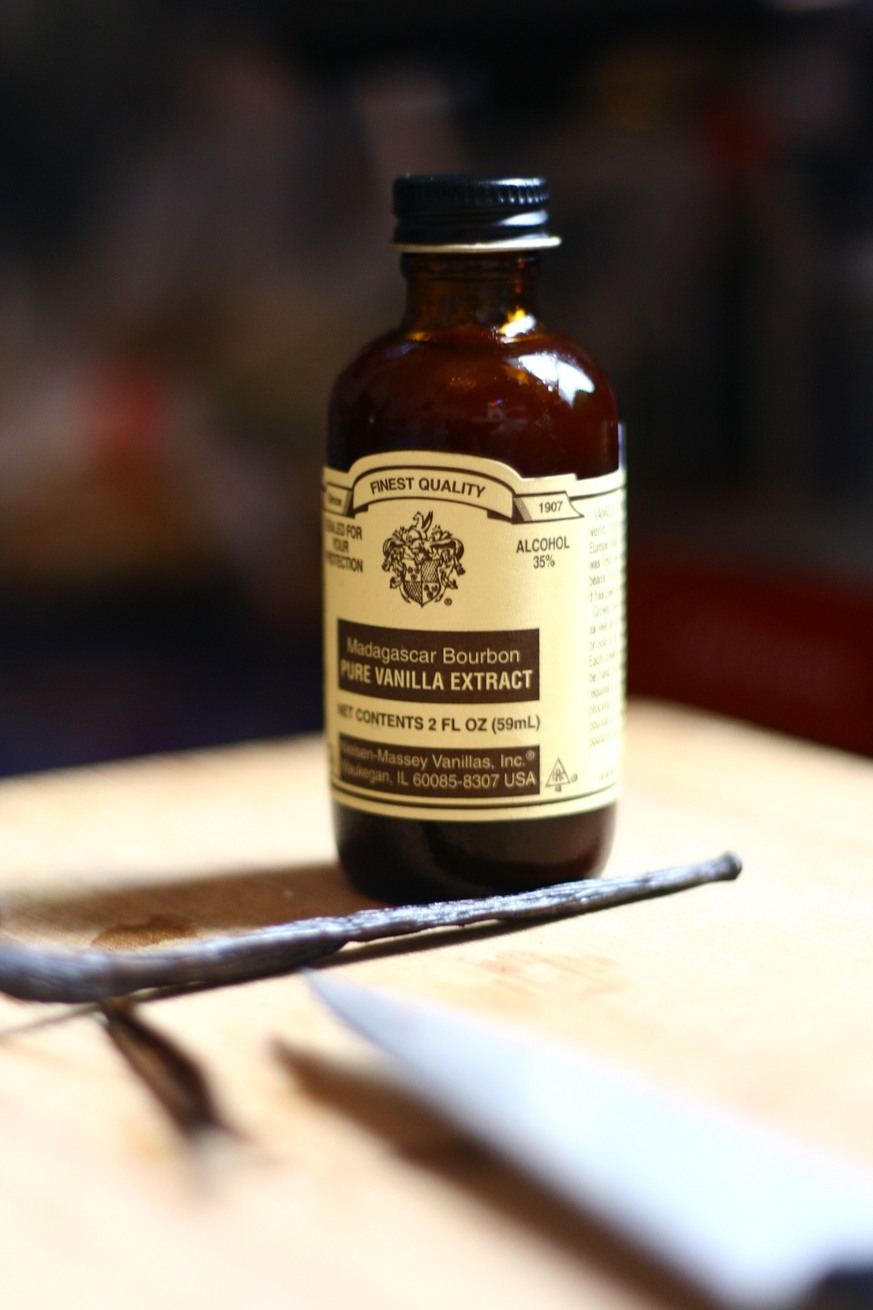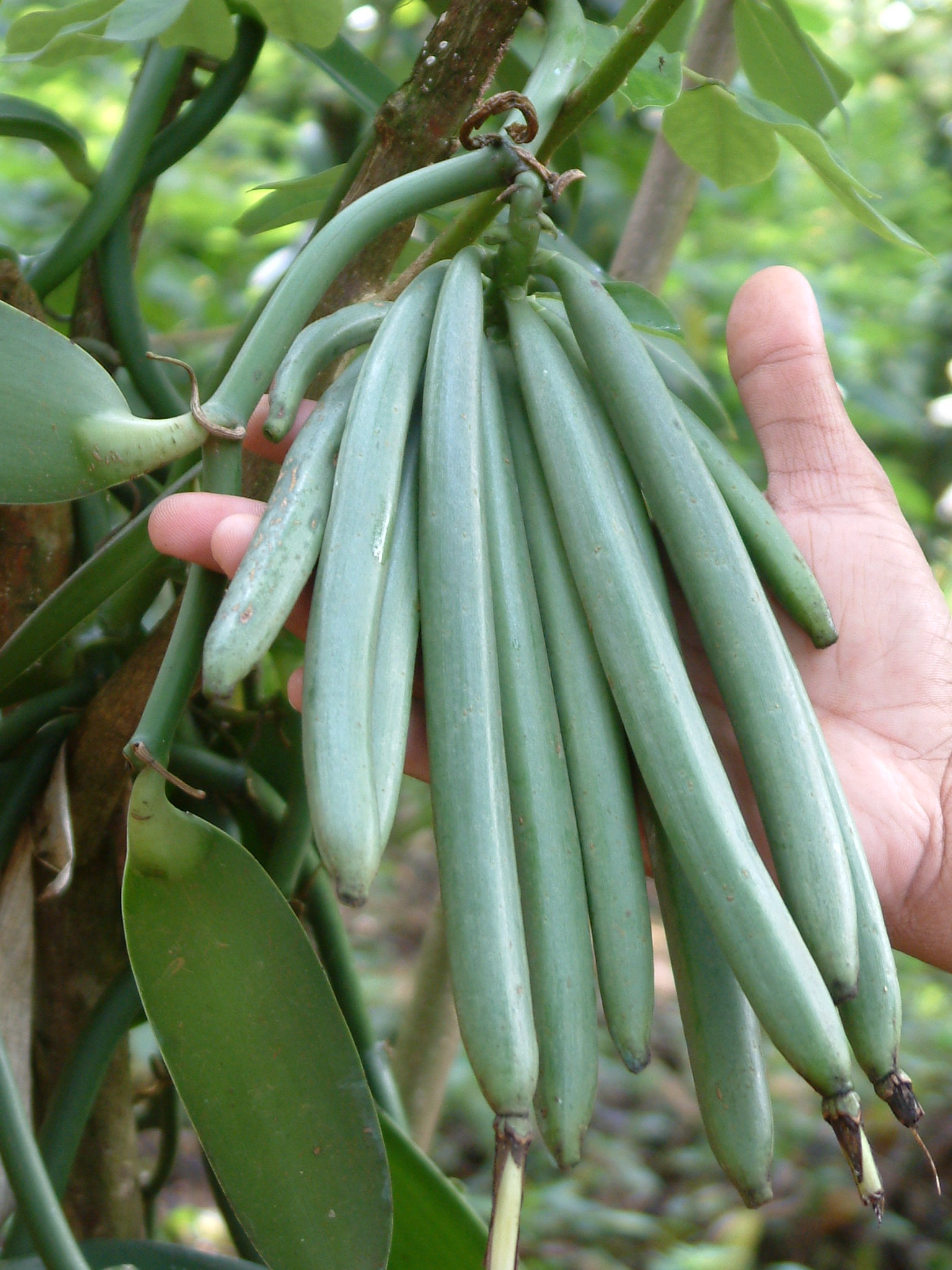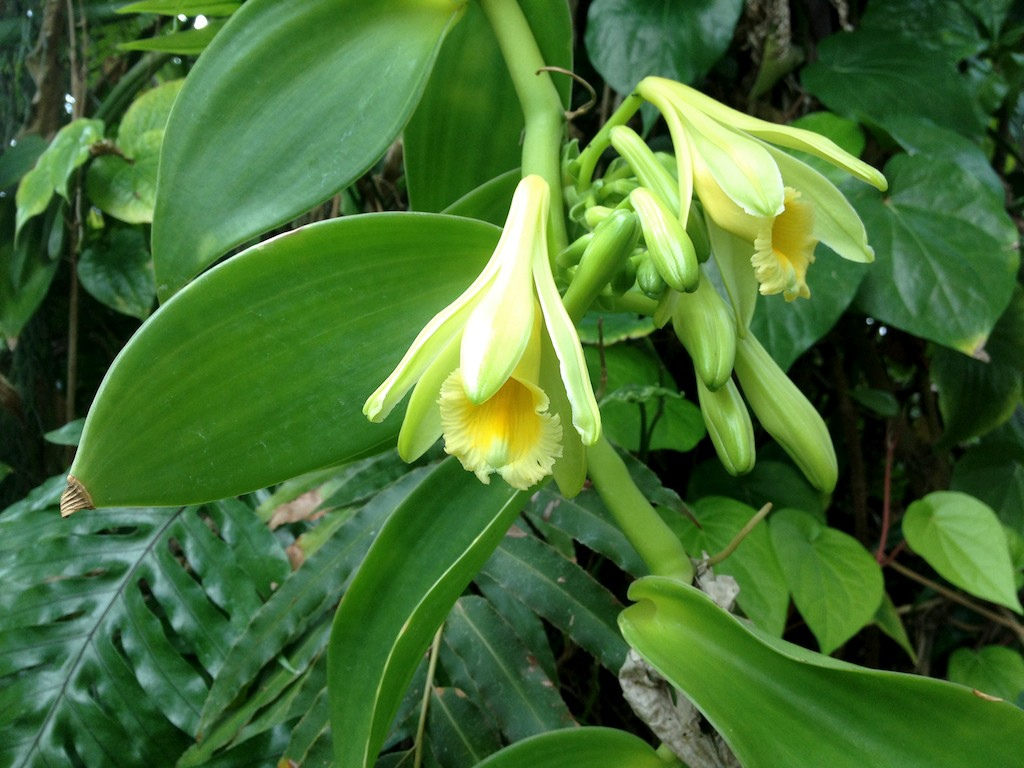Pure Vanilla Extract or A Cheap Imitation?

So….. I have a confession. My parents traveled to Mexico a few years ago and when they came back, they brought back the good stuff- true vanilla extract, not the imitation stuff. However, I still haven’t even opened it! I have felt so intimidated by trying the good stuff that I’ve been too afraid to open and waste the bottle! Because when you spend money on the good stuff, it’s gotta count, right? My kids definitely don’t care if I’m using the imitation stuff ;).
But is there really a difference between pure vanilla and the imitation extracts you can easily find in stores? Most people just buy the imitation stuff, so why go for the pure? What’s the difference?

Pure vanilla extract gets its flavor from vanilla beans (or vanilla pods), which come from the vanilla orchid. These unique flowers originate from Mexico, but additionally they are now grown in Tahiti, India, Indonesia, Uganda, and Madagascar. But their rarity isn’t just limited to the location of their home!

These flowers can only be pollinated by the Melipona Bee- otherwise they must be hand-pollinated. On top of that, a vanilla orchid doesn’t even start producing the sweet vanilla pods until 3 years after it’s been planted! Add to this the fact that when the flowers finally bloom, they only bloom for 12 hours for one day, giving you have a very small window to pollinate- no wonder vanilla doesn’t come cheap! Unless it’s the imitation ;).
Imitation extract comes from synthetic vanillin- which is extracted from wood pulp. It’s pumped full of artificial sweeteners, and so those with very sensitive palates can taste a heavy chemical aftertaste when eating the imitation stuff. However, not all of us have superhero taste buds…..
So- does it matter? Here’s what some professionals had to say- basically the answers ranged anywhere from:
“ALWAYS! I'd rather use nothing, as the taste of artificial vanilla varies from insipid to nasty. Pure vanilla not only has a delicious taste of its own; it also enhances other flavors.”
“Think of vanilla extract like olive oil. Keep a solid, reasonably priced supermarket brand on hand for everyday baking, and save the spendy, more robust vanilla products — like premium extracts, vanilla-bean paste, and whole vanilla beans — for recipes that are very vanilla-forward and can let your investment shine, like sugar cookies, vanilla cakes, pastry cream, and buttercream frosting”.
No one thought using imitation vanilla all the time was a good idea ;). When it comes down to it- it comes down to your tastes and your budget! If you can afford to use the pure stuff all the time, you’re taste buds certainly won’t be hurting ;). However, in recipes like baked goods or where you will be using chocolate or other strong flavors, you can get away with imitation vanilla and few people are going to notice the difference. However, if you’re making a custard, ice cream, frosting, sugar cookie, or something where the vanilla is the main flavor, you definitely want to use the good stuff!
I think I’m going to have to break out the good stuff this holiday season and give it a shot!
What are your thoughts on imitation vanilla vs. pure extract? Do you use one or the other? Both? I’d love to hear your thoughts!
- https://www.vegetablegardener.com/item/12993/the-vanilla-bean-orchid
- https://www.thespruceeats.com/theres-nothing-ordinary-about-vanilla-1136402
- https://www.thespruceeats.com/vanilla-extract-and-flavoring-1809275
- https://www.thekitchn.com/is-pure-vanilla-extract-really-worth-the-price-ingredient-intelligence-213507
- https://www.bhg.com/recipes/how-to/bake/when-to-use-pure-vanilla-extract-or-imitation-vanilla-in-dessert/
- https://commons.wikimedia.org/wiki/File:Madagascar_bourbon_vanilla_x.jpg
- https://en.wikipedia.org/wiki/Vanilla_planifolia
- https://commons.wikimedia.org/wiki/File:Vanilla_beans.jpg
 Camille Hoffmann
Camille Hoffmann
Weekly Newsletter Contributor since 2014
Email the author! camille@dvo.com
